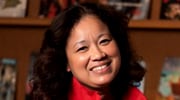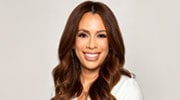Inside the #SpotItToStopIt movement
Conversation with leaders
There is a need to have conversation with people and educate them
Diane Schwarz
Vice President & Chief Information Officer, Johnson Controls
Adam Bryant: As a woman in business, I'm sure you've encountered some headwinds over your career. What moments come to mind?
Diane Schwarz: Honestly, I may have been a little tone deaf to this earlier in my career because I wanted to plow ahead and succeed. So if I felt I needed to be at the table or be in the conversation, I just made it happen. Certainly, there have been many situations where it was uncomfortable. But there were times I just had to muscle past them and move forward.
Adam: What was the framework you developed for yourself about whether to ignore something or engage with someone about what they did or said?
Diane: It depends very much on situational awareness. I have two older brothers who loved to pick on me as a child, which helps you develop some tough skin and an understanding that it may not be intentional if somebody's not including you in a conversation. You can’t always be so sensitive.
But I can share one particular situation where I was really sensitive to how other women or other diverse employees might have felt in a situation. This was in the depth of Covid, so we were all on camera, which can make you feel a bit more safe in how you address somebody or something. There was a colleague who kept saying, “Brothers, we're going to do this. Brothers, we're going to do that.”
He meant it as a rallying cry. I'm very sensitive to gender specific labels and terms, so I just chimed in and said, “Sisters. Brothers and sisters, we're going to rally and do this.” He got the message. I did it in a slightly jovial manner, and a couple of peers contacted me later and said, “Thank you for doing that, and thank you for doing it in a way that wasn't confrontational.” It sent the message in just the right way that maybe he needed to think differently about his language.
And people often use “guys” as a generic term. They don't mean it in a gender-specific way. And a lot of women say “hey guys” to both men and women. But we need to be more inclusive. At times I will talk to somebody after a meeting and say, “Are you aware that that could be offensive or not inclusive to others? Can I suggest you use another term like folks, or say, ‘hey everybody?’” Often when I suggest that to someone, they're not even aware that what they were saying wasn't inclusive.’ It really is our obligation to have those conversations with people and educate them.
Adam: What other patterns have you seen in terms of headwinds? Things like mansplaining and taking credits for others’ ideas are pretty common.
Diane: I think we all have experienced those. But I don't view that necessarily as being about gender. Often it’s just because someone is a more aggressive personality or they are an extrovert talking over someone who is an introvert. So again, you really have to have that situational awareness to say, when are you going to address it? There are times when I have colleagues that bluster more than I wish they would, but there are some people where you say, that’s just their personality.
Adam: What do you do with a repeat offender—someone you have to talk to after a meeting? How do you handle that conversation?
Diane: Sometimes you need to enlist your armies. We had a situation where a colleague was doing something, time and time again, that made many of us uncomfortable. We went to a male colleague and said, will you go talk to this person? He said that he would, but the problem persisted with his behavior, which was offensive to a number of the women in the group.
So we all got together and played “rock paper scissors” to see who would talk to him. Somebody else lost, and she went and addressed it with the individual. She said, “I'm speaking for the group, not just for myself, and we are sharing this with you to help with your professional development.” The person wasn’t being a bully or anything like it. It was more like unintentionally offensive behaviors. But it took gravitas and trust and vulnerability for those of us to get together and agree that it made us all uncomfortable and that we were going to do something about it.
Adam: Do you feel like things are getting better, that the headwinds are dying down, or are things the same as they’ve ever been?
Diane: Men and women have been on Venus and Mars for a couple of millennia. I don't think that it's better. I think it's different. And women aren't perfect. A different question is, when will we have gender parity at all levels? It still is horrifying to me when I see predictions that we won't have gender parity in the CEO role at the Fortune 500 level for another hundred years. So gender parity still has a way to go.
Adam: You've obviously got a lot of ambition and drive. Where did that come from early in your life?
Diane: I was a bit of a brat as a youngster. I said that my brothers picked on me, and I probably deserved every bit of it. I was born with such a lack of humility. The humility has grown tremendously as I've gotten some gray hairs, and now I very much appreciate what others bring to the table. But even as a young child, I was saying that I'm going to do everything myself and that I’m going to rule the world. So I guess I was just born with it, as Lady Gaga might say.
Adam: When you mentor and coach younger women, what advice do you typically share with them?
Diane: The advice is often not gender-specific. First and foremost, have learning agility. Whatever we learned in college is totally different than what you're dealing with on a day-to-day basis. So you have to be adaptable, flexible, and always understand what is changing in the world and in your business environment.
The other advice I share is to be bold. We do find gender differences where women tend to feel that we need to have all the skills and demonstrate all the abilities before raising our hand for a role. And men tend not to. They tend to put themselves out there at, say, the 40 percent level. So I often give people the advice to “play a role.”
If you are uncomfortable with the idea of meeting with your boss to ask for a promotion or raise, treat it like a role in a play for the moment. Even the greatest introvert can step out of that comfort zone for 20 minutes or an hour. So think through your talking points, understand your script and the point you're going to make, take a deep breath and go in and play that role. People may feel they're being inauthentic, but they're really not because you are just stepping outside your comfort zone for a short period. Stepping outside your comfort zone takes practice, but it becomes far less uncomfortable over time. And then it really does become part of who you are.














